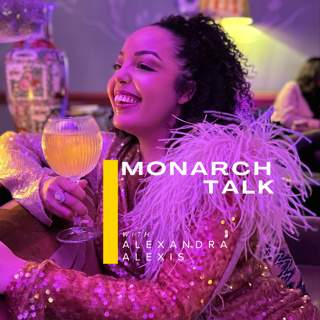
340. The 10 regrets I have about my 20s (so far)
Today I'm reflecting on some of the lessons I've been taking from my early 20s. We all have regrets about things we wish we'd done differently or not done at all, and I'm hoping you can learn from mine. We talk about everything from bad financial decisions, ghosting friends, staying in relationships farrr too long, to impulse buying, ignoring gut feelings and fighting with family. Listen now to hear all ten! ORDER MY BOOK Follow Jemma on Instagram: @jemmasbeg Follow the podcast on Instagram: @thatpsychologypodcast For business: psychologyofyour20s@gmail.com The Psychology of your 20s is not a substitute for professional mental health help. If you are struggling, distressed or require personalised advice, please reach out to your doctor or a licensed psychologist. See omnystudio.com/listener for privacy information.
7 Loka 39min

339. The psychology of rock bottom
Hitting rock bottom is one of the most painful human experiences - when the future is blurry, the past feels heavy, and you barely recognize the person staring back in the mirror. Maybe it’s the end of a relationship, losing your job, battling addiction, or simply feeling like everything you built has crumbled. In this episode, we explore what those lowest points really feel like, why we sometimes end up there, and how, against all odds, they can become the very place where healing and transformation begin. We explore: • What rock bottom feels like• The role of identity collapse and self-concept clarity• Passivity, external locus of control, and addiction as routes to rock bottom• Our dark night of the soul and searching for meaning• Why rock bottom can motivate change• 5 tips climbing out and rebuilding self-concept If you’ve ever felt like you’ve lost control, lost yourself, or lost your way - this episode is for you. ORDER MY BOOK Follow Jemma on Instagram: @jemmasbeg Follow the podcast on Instagram: @thatpsychologypodcast For business: psychologyofyour20s@gmail.com The Psychology of your 20s is not a substitute for professional mental health help. If you are struggling, distressed or require personalised advice, please reach out to your doctor or a licensed psychologist. See omnystudio.com/listener for privacy information.
2 Loka 40min

I Am Not Here To Manage Other People's Emotions
In this bonus release, I am sharing an episode of my other podcast, MANTRA. This week's mantra is I Am Not Here to Manage Other People’s Emotions. It's a common trap to feel responsible for the feelings of those around us, often at the expense of our own emotional well-being. But true empathy means holding space for others without taking on their emotional burden or feeling obligated to fix their feelings. In this episode of Mantra, we'll explore how to set healthy emotional boundaries, distinguish between compassion and co-dependency, and prioritize your own inner peace. Releasing the need to manage others' emotions isn't about being uncaring; it's about empowering yourself and allowing others to navigate their own emotional landscapes. This Mantra will help you reclaim your energy, honor your boundaries, and cultivate healthier, more authentic relationships. Mantra is an OpenMind Original Podcast, powered by PAVE Studios. Listen wherever you get your podcasts. For ad-free listening and early access to episodes, subscribe to OpenMind+ on Apple Podcasts. Don’t Miss out on all things Mantra! * Instagram: @mantraopenmind | @OpenMindStudios * TikTok: @OpenMind * Facebook: @OpenMind * X: @OpenMindStudios * YouTube: @OpenMind_Studios Follow Mantra on Apple Podcasts, Spotify, or wherever you listen. Listen here: https://link.podtrac.com/qg9b5fjlSee omnystudio.com/listener for privacy information.
1 Loka 32min

338. The psychology of borderline personality disorder (BPD)
Borderline Personality Disorder (BPD) is one of the most misunderstood mental health conditions, clouded by stigma and misinformation. In this episode, we take a compassionate, research-based look at what BPD really is, where it comes from, and how people living with it can find healing and stability. From exploring the biological underpinnings and role of trauma, to the impact on relationships and the remarkable effectiveness of treatments like DBT and SCM, we look at both the challenges and hope. We’ll explore: • What BPD feels like and the key symptoms• The biosocial model: how biology and the environment intertwine• The impact BPD has on relationships and attachment• Stigma, myths, and gendered assumptions around diagnosis• Why loneliness is high, and support is essential• How DBT and Structured Clinical Management help people adapt• The encouraging truth about recovery and long-term prognosis If you’ve ever wanted to learn more about this misunderstood condition, this episode is for you. ORDER MY BOOK Follow Jemma on Instagram: @jemmasbeg Follow the podcast on Instagram: @thatpsychologypodcast For business: psychologyofyour20s@gmail.com The Psychology of your 20s is not a substitute for professional mental health help. If you are struggling, distressed or require personalised advice, please reach out to your doctor or a licensed psychologist.See omnystudio.com/listener for privacy information.
30 Syys 58min

337. Are personality tests legit?
From Myers-Briggs to the Big Five, almost all of us at some stage have done a personality test. Whether it labelled you an introvert or extrovert, a big thinker or a small details individual, it's easy to get swept up in the idea that these tests can tell us all we need to know about our personality and identity. But are they legit, and what is the science behind them? In today's episode, we break down: The scientific basis for personality tests The interesting, feminist history behind personality tests Reliability vs. validity vs. relatability Why we end up believing what we read How to actually use personality tests to your advantage Listen now! ORDER MY BOOK Follow Jemma on Instagram: @jemmasbeg Follow the podcast on Instagram: @thatpsychologypodcast For business: psychologyofyour20s@gmail.com The Psychology of your 20s is not a substitute for professional mental health help. If you are struggling, distressed or require personalised advice, please reach out to your doctor or a licensed psychologist. See omnystudio.com/listener for privacy information.
28 Syys 25min

336. Why do we crave external validation?
In our twenties, the feedback sources that once defined our worth - grades, report cards, and parental praise - start to disappear. This leaves a void, which many of us instinctively turn to external sources like social media, career achievements, and the opinions of others, to fill. And while this external validation isn’t inherently bad, we need to be mindful of refilling our own sense of self before becoming reliant on others. In this episode, we discuss why a life built on others' approval is like living on quicksand and how to cultivate a sturdy, reliable sense of self that will withstand the inevitable ebb and flow of external opinions. We’ll explore: • The difference between external and internal validation• Why our brains are wired to seek social approval• The looking glass self and the inherent need to belong• How contingent self-esteem can quietly erode confidence• How to recognise when you’re outsourcing your self-worth• Balancing feedback without letting it define you If the number of likes on your Instagram post has ever dictated how you feel - this episode is for you. ORDER MY BOOK Follow Jemma on Instagram: @jemmasbeg Follow the podcast on Instagram: @thatpsychologypodcast For business: psychologyofyour20s@gmail.com The Psychology of your 20s is not a substitute for professional mental health help. If you are struggling, distressed or require personalised advice, please reach out to your doctor or a licensed psychologist. See omnystudio.com/listener for privacy information.
25 Syys 42min

335. It's okay to change your mind
We often think that once we've made a decision, or said we believe something, or stated something about ourselves, we must always stay the same and can never change our minds. That is entirely incorrect - being able to say "I was wrong" or "this isn't me anymore" show incredible psychological strength. Being able to quit and start again is often the start of a truly fulfilled life. In today's episode we discuss how being okay with changing your mind can: Help us make better decisions Overcome disappointing others Reduce our fear of judgement Lead to a more fulfilled life + so much more Listen now! ORDER MY BOOK Follow Jemma on Instagram: @jemmasbeg Follow the podcast on Instagram: @thatpsychologypodcast For business: psychologyofyour20s@gmail.com The Psychology of your 20s is not a substitute for professional mental health help. If you are struggling, distressed or require personalised advice, please reach out to your doctor or a licensed psychologist.See omnystudio.com/listener for privacy information.
23 Syys 43min

334. How to fully trust yourself
We live in a world full of opinions, advice, and expectations - and somewhere in the noise, our own inner voice can get drowned out. Learning to trust yourself sounds simple, but in practice it’s a hard skills to build. Doubt, fear of mistakes, and the pressure to “get it right” often pull us away from what we already know deep down. In this episode, we explore the psychology of self-trust: how it develops, why it falters, and what it really means to listen to yourself in a culture that constantly tells you to look outward for answers. We’ll explore:• Why self-trust is so crucial in this decade• Self-trust as the antidote to anxiety• How self-trust is shaped by early experiences and current circumstances• Small ways to practice trusting yourself again• Why trusting yourself is less about certainty and more about self-respect If you’ve ever second-guessed yourself into exhaustion, or felt like your inner compass has gone quiet, this episode is for you. ORDER MY BOOK Follow Jemma on Instagram: @jemmasbeg Follow the podcast on Instagram: @thatpsychologypodcast For business: psychologyofyour20s@gmail.com The Psychology of your 20s is not a substitute for professional mental health help. If you are struggling, distressed or require personalised advice, please reach out to your doctor or a licensed psychologist.See omnystudio.com/listener for privacy information.
19 Syys 39min





















